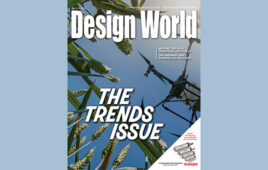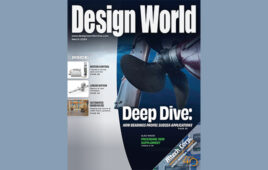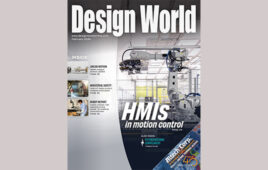Protecting yourself
One of the more interesting talks I heard over the course of 2019 came at the recent Power Transmission Distributors Association’s Industry Summit. Frank Abagnale, whose early exploits as a con man and check forger were detailed in the 2002 film Catch Me If You Can, spoke about his life and his lessons learned.
Abagnale, who went on to work for the federal government, shared his thoughts on how to protect your personal information in today’s world of online scams. While a diff erent kind of technical issue than the normal engineering topics we cover, I thought it worthwhile to share with you for the new year. Here are his top three suggestions:
1. Freeze your credit. Identity theft is a real problem. Congress has passed a federal statute allowing for every American citizen to freeze their credit. Absolutely no fee can be charged. You can freeze it and unfreeze it over and over.
“It’s as simple as going to the Google box and typing in ‘how do I freeze my credit,’” he said. Abagnale explained that once you freeze your credit, absolutely no one can see your credit without your consent. If tomorrow you decide to buy a car, you go down to the car dealership and tell them you’d like the finance it for three years, want to get the best interest rate, and you will unfreeze your credit to the dealership to run the credit. Then it’ll be frozen, and you leave the car dealership again. “I would highly recommend anyone with 16-year-old children or older to freeze their credit, too.”
2. Don’t write checks for just anything. He doesn’t write a lot of checks anymore, and he’s careful where he does. If you go to the drug store tomorrow and write a check for $9, you’d have to hand the clerk the check. On the check is your name, address and phone number, your bank’s name and address, your account number at your bank, your routing number into your account — in other words, your wiring instructions. It also has your signature. And the clerk will likely write your driver’s license number and your date of birth on the front of the check.
“We live in truncation, which means you don’t get the check back,” he said. “You get an image of the check. The physical check goes to their warehouse for 65 days, where eventually they will destroy it. Anyone who would see it, in the meantime, could draft on your account.”
3. Don’t own a debit card. “I’ve never owned a debit card,” Abagnale said. “I have written many, many articles on debit versus credit. I’ve had three sons and have never allowed them to possess a debit card to this day, and they’re grown men. A long time ago, I asked myself a very simple question, ‘How do I remove 99% of my financial liability?’ And the answer is to use the safest form of payment that exists in the United States, and that is a credit card. Not credit debit card, credit card. Visa, MasterCard, American Express, Discover Card. Every day of my life, I spend the credit card company’s money. I never spend one dime of my money.”
Abagnale said he uses a credit card to get his dry cleaning, pick up the groceries, get on a plane, etc. He explained that he does everything in his power to make sure no one gets his number, but if they do tomorrow, and they charge $1 million on his credit card, by federal law, his liability is zero. When he pays the bill every month or the minimum due, his credit score rises, and he continues to build his credit.
“Alternatively, when you use your debit card, every time you reach for it, you expose the money in your account.”
Sage advice for 2020 and beyond. Stay safe!
Paul J. Heney – VP, Editorial Director
[email protected]
On Twitter @ DW—Editor
Filed Under: DIGITAL ISSUES • DESIGN WORLD




